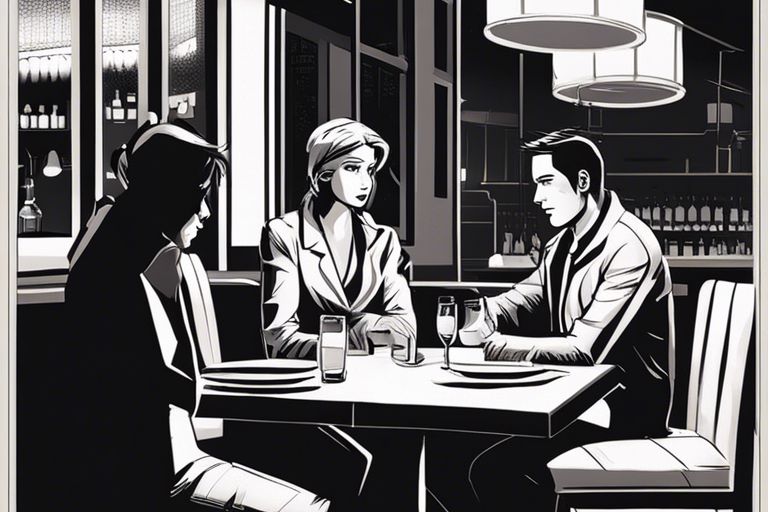Worst Types of Breakups Ever

Heartbreak is an inevitable part of the human experience, and some breakups can be more brutal than others.
From betrayal to ghosting, the emotional toll of a breakup can be devastating. In this blog post, we look into the worst types of breakups ever, shedding light on the most heart-wrenching and destructive ways relationships can come to an end.
Whether you’re going through a breakup yourself or simply curious about the different types out there, this post will provide insightful and eye-opening views of some of the most painful breakup scenarios.
Key Takeaways:
- Infidelity: Breakups resulting from cheating can be devastating, leading to feelings of betrayal and heartbreak.
- Ghosting: Being abruptly ignored and cut off without explanation can leave individuals feeling confused, hurt, and with a lack of closure.
- Abusive Relationships: Getting out of a toxic relationship can be incredibly difficult but necessary for one’s mental and emotional well-being.
- Long-distance: The challenges of maintaining a long-distance relationship can lead to drifting apart and a difficult breakup due to distance and lack of physical connection.
- Public Humiliation: Breakups that occur in a public setting or are exposed on social media can lead to feelings of embarrassment, shame, and vulnerability.
Sudden Ghosting
The Psychology Behind Ghosting
For some individuals, ghosting can be a way to avoid confrontation or deal with conflict in a passive-aggressive manner. It allows the person initiating the ghosting to disconnect without having to face the emotional discomfort that a breakup conversation may bring. This behavior is often rooted in fear of rejection, conflict avoidance, or a lack of emotional maturity.
Coping with Unexpected Silence
Unexpected silence in a relationship can be incredibly hurtful and confusing. It can leave the person on the receiving end feeling rejected, abandoned, and questioning their own self-worth. To cope with the sudden silence, it’s important to remember that ghosting is a reflection of the other person’s inability to communicate effectively and has nothing to do with your value as a person.
Psychology: Coping with unexpected silence can be challenging, but it’s crucial to prioritize self-care and focus on rebuilding your self-esteem. It’s important to resist the temptation to reach out to the person who ghosted you and instead surround yourself with supportive friends and family who can provide comfort during this difficult time.
Public Humiliation
Real-Life Examples of Public Breakups
Any time a breakup happens in a public setting, the embarrassment and humiliation can be difficult to bear. One classic example is a couple having a heated argument in a crowded restaurant, with emotions running high and harsh words exchanged. The uncomfortable atmosphere and prying eyes only add to the pain of the breakup.
The Impact of Social Media
Humiliation can reach new heights when breakups play out on social media platforms. With the click of a button, a private matter can become a viral sensation for all to see. Personal details and intimate moments are suddenly exposed to a wide audience, leading to a sense of betrayal and shame.
For instance, a post-breakup rant or a series of incriminating photos shared online can damage a person’s reputation and self-esteem. The relentless nature of social media can prolong the humiliation, causing long-term emotional distress and even affecting future relationships.
Cheating and Infidelity
Discovering Betrayal
Many people have experienced the gut-wrenching discovery of their partner’s infidelity. Whether it’s finding incriminating messages on their phone or catching them in the act, the moment of realization can be soul-crushing. The shock and disbelief are often followed by a flood of emotions, including anger, sadness, and betrayal.
Trust and Its Aftermath
An necessary component of any relationship is trust. When infidelity is involved, that trust is shattered into a million pieces. For the person who has been cheated on, rebuilding trust can seem like an insurmountable task. The aftermath of cheating can lead to deep insecurity, anxiety, and fear of future relationships.
The Long-Distance Fade Away
Challenges of Geographic Separation
All long-distance relationships come with their own set of challenges, and maintaining a long-distance romance requires both parties to be committed and invested in making it work. The physical distance can often lead to feelings of loneliness, insecurity, and a lack of intimacy.
The Drift and Its Emotional Toll
Geographic separation can sometimes lead to a slow fade in the relationship, where communication becomes less frequent, visits become scarce, and emotional connection begins to wane. This gradual drift can take a toll on both individuals, leading to feelings of uncertainty, anxiety, and ultimately, the end of the relationship.
Plus, when one or both partners start feeling neglected or disconnected, it can pave the way for misunderstandings, resentment, and a growing sense of emotional detachment. These emotional tolls can have long-lasting effects on the individuals involved and can make it challenging to salvage the relationship.

The On-Again, Off-Again Rollercoaster
The Dynamics of an Unstable Relationship
On-again, off-again relationships are often fueled by intense emotions and a cycle of highs and lows. The partners may experience ambivalence about their connection, leading to frequent breakups followed by reconciliations. The instability in such relationships can breed uncertainty and erode trust, creating a turbulent environment that drains both individuals emotionally.
The Mental Health Consequences
On-again, off-again relationships can take a significant toll on mental health. The constant back-and-forth can lead to feelings of insecurity, anxiety, and depression. Individuals may struggle with self-worth and experience a rollercoaster of emotions that can be damaging to their overall well-being. Studies have shown that this pattern of breaking up and reuniting can lead to higher levels of stress and lower self-esteem.
To break free from this cycle, individuals must prioritize their mental health and recognize when the relationship is doing more harm than good. Seeking therapy, setting boundaries, and practicing self-care are vital steps towards healing and moving towards healthier relationship dynamics.
Summing up
From above, it is evident that there are numerous painful and devastating types of breakups that individuals may experience. Whether it’s a sudden ghosting, a brutal betrayal, a toxic relationship, or a drawn-out long-distance breakup, the emotional toll can be immense. It is vital to recognize the signs of an unhealthy relationship and prioritize self-care during such challenging times. Seeking support from friends, family, or a therapist can aid in healing and moving forward from these worst types of breakups ever.
FAQ
Q: What are the worst types of breakups ever?
A: The worst types of breakups are typically those that involve betrayal, infidelity, emotional abuse, or sudden, unexpected endings. These types of breakups can be extremely painful and have long-lasting effects on the individuals involved.
Q: How can one cope with a particularly difficult breakup?
A: Coping with a difficult breakup involves allowing yourself to grieve, seeking support from friends and family, focusing on self-care, and possibly seeking therapy to process your emotions. It’s important to give yourself time to heal and not rush the healing process.
Q: Are there any warning signs that a breakup might be particularly bad?
A: Warning signs that a breakup might be particularly bad include a lack of communication, repeated arguments, a loss of trust, or feelings of resentment. If you notice these signs in your relationship, it’s important to address them early on to potentially avoid a painful breakup.






